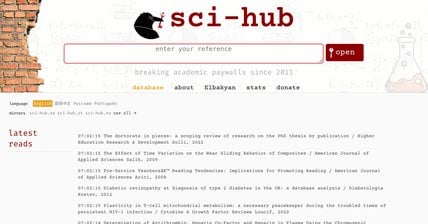This is an automated archive made by the Lemmit Bot.
The original was posted on /r/india by /u/Live_Ostrich_6668 on 2025-04-02 01:20:16+00:00.
For those out of the loop, Sci-Hub is a website that provides free access to millions of research papers and articles that are usually locked behind paywalls. It was started in 2011 by Alexandra Elbakyan, a student from Kazakhstan, who now lives in Russia.
Now cut to December 2020, three big academic publishers—Elsevier, Wiley, and the American Chemical Society—sued Sci-Hub and LibGen in the Delhi High Court (High courts are only second to the Supreme Court in India, which is the highest judicial authority in the country) by filing a ‘copyright infringement’ lawsuit against them. The court then asked it to pause any new uploads, and the website has been inactive since then. There have been multiple hearings since then, but the case keeps on dragging with hopes dwindling for a verdict anytime soon.
Now the question is, was this exactly the kind of outcome that the publishers were trying to achieve? If yes, then why did they selected India? Why not any other country?
Lastly and most importantly, why did Alexandra even chose to comply?
From Sci-Hub’s wiki page:
In order to have a better chance of winning a lawsuit presented against her and Sci-Hub by Elsevier in India, Elbakyan complied with a preliminary injunction issued by an Indian court, and suspended in 2021 upload of new publications, except for some batch releases of content.
So it seems like both the founder and the publishers thought they had a ‘better chance of winning’ in India, which is quite baffling and incomprehensible.
What are your thoughts on the whole issue, and what do you think is going to be most likely outcome in this battle?


